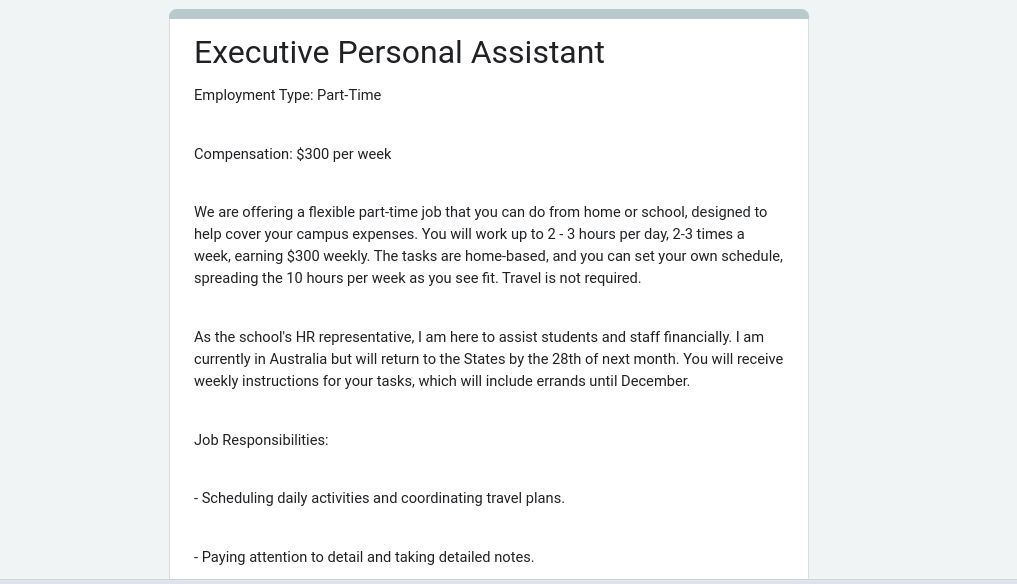Go fish! The chances of drawing the card you desire are unfortunately much lower than the chances of receiving a spam email.
96% of phishing attacks are sent via-email, and students at PLHS have recently found themselves on the receiving end. Sent from a plcschools.org address, the email contains a remote job offer for high school students, with a salary of 300 dollars a week. Anybody with a plcschools.org email address would’ve received this email, making the audience age group 5-18.
Although high school students may claim themselves as “tech savvy,” young adults are actually the most prone to falling for phishing attacks. After them, are people over 75, who are more likely to actually give up information and lose money.
There’s no clear way to avoid spam emails, but there is a way to avoid falling in the trap. Dr. Christopher Villarreal, director of communications at PLCS, was quick to point out the job offer as spam, and gave tips for people who had fallen for it, or hadn’t had the chance to yet.
“These scams are becoming extremely sophisticated and can be very convincing,” Villarreal said. “If you’ve clicked on any links or submitted information through these emails, please change your passwords.”
Most people aren’t aware of the impacts of a phishing attack. Interacting with these emails puts a person at risk for extortion, monetary theft, or identity theft. Once the scammer is in, all personal data is exposed.
Broke high school students were the perfect victims for this attack; less work, more money. The email specifically emphasized the job’s flexibility, no travel or car is needed. Working from home is something high school students today are very used to seeing, considering their past school conditions. The job could have interested some recipients, leading them to a google doc application. When found in this situation, there are important things to look out for to determine whether you are being scammed or not.
“When in doubt about an email’s legitimacy – even if it appears to be from someone you know- it’s always okay to pause before clicking links or downloading attachments,” Villarreal said. “You can verify requests by contacting your school’s or district office immediately.”
Whether you’ve been told “Go fish!” or “JOB OFFER $300,” your chances of actually getting what you want are slim. Phishing attacks are very common, and falling for them is common too.
“Remember you’re not alone. Many people fall victim to phishing scams,” Villarreal said. “The most important thing is to take action and protect yourself.”







